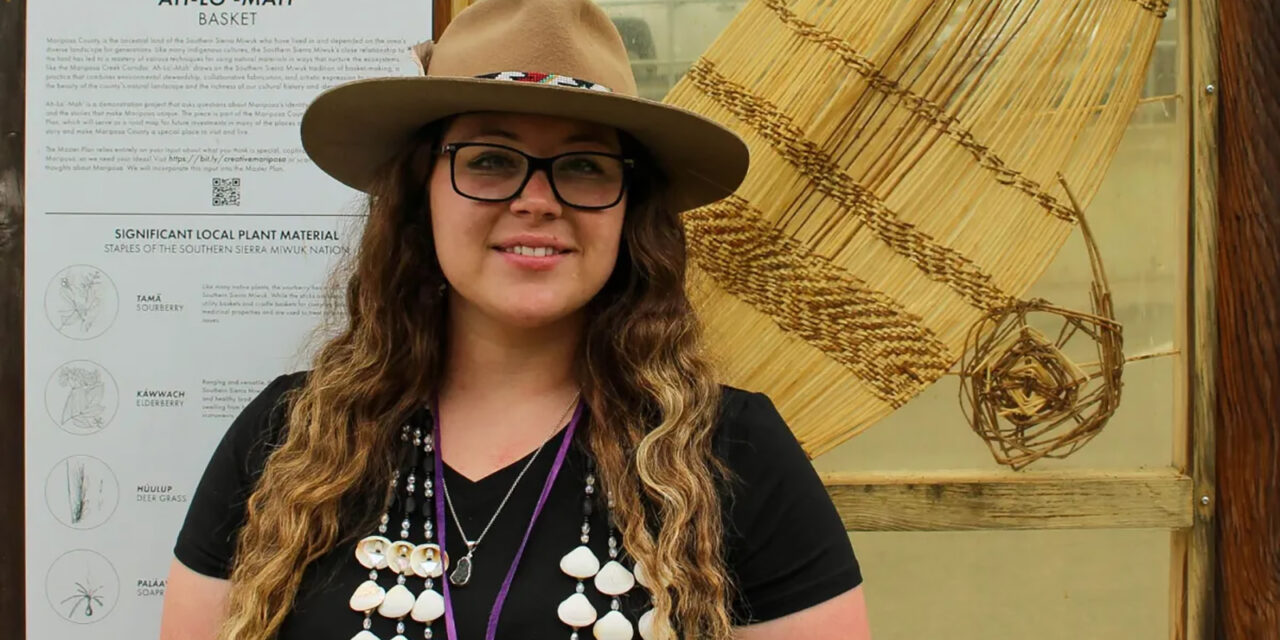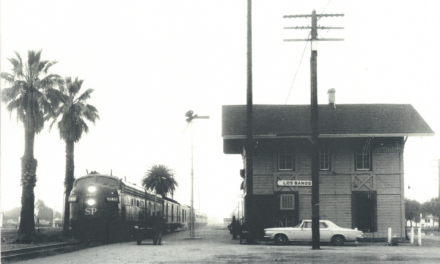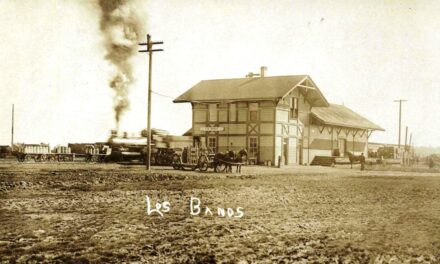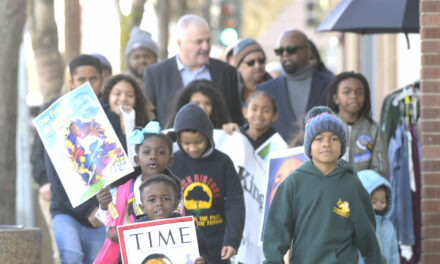Along the Merced River, a short distance from Yosemite National Park, lies a freshly-covered grave for a boy from an unknown Native American tribe.
Jazzmyn Gegere, who is a member of the Southern Sierra Miwuk Tribe dug the grave herself not too long ago. Gegere is also a descendent of the Mono Lake Paiute, Chukchansi and Yokut tribes. She said this boy didn’t die recently. His remains were uncovered during an archeological excavation nearby without any indication of a name, gender, or tribe, before being repatriated to her tribe. Despite the lack of information, she knows her ancestor was a boy because of what he was buried with and her traditional spiritual knowledge.
After digging the grave, Gegere led a small reburial ceremony with tribal community members. She walked the group toward a space among fallen yellowed leaves. Birds chirped from the branches above and the water rushed against the rocks below.
They sang songs and recited prayers.
“Even though we don’t necessarily have a name or face for this ancestor, you still feel it as though you were burying your very close first cousin,” Gegere said.
There was no itinerary for this ceremony. Her tribe, like many others, never thought they would have to perform ceremonies like these.
“We’re bringing them home in a good way and we’re doing it the best way that we know how,” she said.
Although this ancestor was handed over to Gegere’s tribe shortly after he was found in Mariposa County, others are still being held in universities and museums, and have been for decades. Many institutions use them for scientific or research purposes in fields like anthropology and history.
For more than 30 years, this practice has been illegal.
In 1990, a federal law called the Native American Graves Protection and Repatriation Act (NAGPRA) required any institution that receives federal funds like museums, government agencies and public universities to return Native American remains and cultural belongings to their descendents. California’s legislature then passed a state law in 2001 to include tribes that are not federally recognized, like Gegere’s.
Three audits published by the California State Auditor in 2020, 2022, and 2023 showed that hundreds of thousands of Native belongings still remained at California’s public universities.
Gegere’s tribe and others are likely to be conducting ceremonies like this more often as those universities work to comply with the laws.
But coordinators at those institutions also report challenges in returning these belongings – and those hurdles add to the regulatory and emotional barriers that tribes face in getting their ancestors back.
Bottom of Form
Audit brings tribal challenges to the forefront
After the first two audits examined Native American possessions within the University of California system, the third focused on the California State University system, the largest public four-year university system in the country. Among the findings, the audit revealed the CSUs failed to repatriate more than 700,000 ancestors and cultural belongings.
Among the San Joaquin Valley’s CSUs — Stanislaus, Fresno, and Bakersfield — they have held an estimated total of at least 37 ancestors and more than 38,000 cultural belongings.
The audits were prompted by a handful of state laws introduced by California Assemblyman James Ramos to place pressure on institutions in the state who had yet to follow the original repatriation laws.
“When other people hold remains of another person and see them as not even human but more of a prized possession, we have a problem,” said Ramos, a Democrat who is a member of the Serrano/Cahuilla tribe in San Bernardino County and the first Native American elected to the state legislature. “The mentality within the academia world…is that what they have and what they’ve uncovered is their personal property, even though it’s the remains of loved ones, of people’s family.”
Gegere agrees this practice is wrong. To her, it’s “just about the same as somebody going to your family cemetery and digging up your grandmother.”
An arduous undertaking
As the director of cultural preservation for her tribe, Gegere handles all matters requiring repatriation.
Since the last audit, she said she’s been overwhelmed with consultation letters from universities. The laws require universities to contact tribes after creating an itemized list of the ancestors and belongings in their possession. She expects to receive at least 20 letters by the end of the year.
Although she’s grateful universities are returning these belongings, she also describes repatriation as a long, tedious process, because she often deals with underfunded staff and sometimes feels institutions don’t offer the sympathy the situation requires.
“When other people hold remains of another person and see them as not even human but more of a prized possession, we have a problem.”
California Assemblymember James Ramos
For starters, the law refers to her ancestors as ancestral or human “remains.” But she doesn’t like that term.
“I don’t even feel comfortable calling our ancestors ‘human remains,’” she said. “It doesn’t sit right. I don’t like that because you’re objectifying a person.”
Gegere also feels like universities need to treat this process with more care, but that isn’t always the case. She said, in her experience, some who have consulted with her from campuses have not come across as empathetic.
“It’s very objectified to them, they’re not connected,” she said. “They don’t understand. They just know that this is the process, this is what they need to do and then they move forward in that way.”
For her, this bureaucratic process is a taxing undertaking.
“This is an emotional venture that we are taking,” she said. “It’s a spiritual burden that we have to carry and then lift.”
Gegere’s tribe is not federally recognized. So she said this requires an additional tribe that is federally recognized to sign for her ancestors once consultation with a campus is complete.
It can also be challenging to obtain land in the correct resting place, she said, so many reburials occur in local cemeteries. Plus, Gegere provides funds for tribal elders and other members to travel to participate in the ceremony, but the tribe doesn’t receive much funding for it to begin with.
Because of these hurdles, Gegere said repatriations can take up to a year or longer.
Universities face uphill battle
In the last year, the Valley’s CSUs have been working to hire full-time coordinators to help come into compliance with the law. But university representatives also told KVPR they have experienced their own share of problems.
Just finding possible candidates to hire is a challenge. David Silva, the interim Native American Graves Protection and Repatriation Act (NAGPRA) coordinator at CSU Bakersfield, said to him it appears Bakersfield isn’t as attractive to potential hires as other campuses are.
“We don’t have giant malls,” Silva said. “We don’t have 40 movie theaters or the most up-to-date restaurants.”
Even though Silva was recently hired to fill in while the university searches for a permanent hire, the institution has yet to consult with tribes – but that when it does, he expects the campus to approach communication with compassion.
“We always want to make sure that we’re not overstepping our bounds and the best way to do that is also to be as respectful as possible to the Native American tribes and to what they’re looking for in terms of consultation,” Silva said.
In an email, CSU Bakersfield spokeswoman Jennifer Self told KVPR that the university has an estimated 234 boxes of items, and more than 55 potential ancestral remains. Self said that the campus is working on consolidating a space for the items and updating their records.
Fresno State’s NAGPRA coordinator, Kellie Carrillo, said the university is currently communicating with 34 tribes.
“This formal consultation between Fresno State and the tribes includes presentations to tribal leadership, and hosting tribal cultural resource management staff on campus for multiple visits and discussions regarding protocols, and preparations for the next steps,” Carrillo told KVPR in an email.
Carrillo also said Fresno State repatriated 122 ancestors to tribes in 1999.
She said she is dedicated full-time to the repatriation of ancestors and cultural belongings. However, she said the university is hiring a second position to assist with tribal relations.
“I don’t really know if communities [that aren’t tribal] understand how much work that is to build relationships with tribes,” Carrillo said. “It’s just really building trust around a really unique issue that is still hurtful and it tends to go back to the history of California Indian people in general.”
Carrillo said she also belongs to a Native American tribe. So she said she understands the overwhelming amount of work that repatriation efforts put on tribes, like the influx of letters Gegere has received in the past year.
“It’s put some of the tribes in a bad place where they’re having to kind of go through each of those [letters] and find out where they need to move the quickest on repatriation,” Carrillo said.
Stanislaus State’s NAGPRA coordinator, Jake Malsbury, said the university remains transparent with tribes and relies on “tribal knowledge” in order to move forward in the process of repatriation.
He later said in an email that the university is currently consulting with tribes and working to fill a campus oversight committee for the law.
Tribes move forward for future generations
Earlier this year, Ramos held a hearing in Sacramento for the Assembly Select Committee on Native American Affairs to evaluate how state universities have been moving forward since the audit.
Among those providing testimony was Leo Sisco, chairman of the Tachi-Yokut tribe in Lemoore.
“We feel our ancestors. They are not science projects. Our ancestors carry values, stories, and we want to bring those stories and those values home,” he said, choking up. “It’s sad that this crime can be practiced publicly and it takes an audit, it takes intervention by outsiders, to make this right.”
Sisco said he feels conflicted about encouraging young people to attend universities that have not complied fully with the repatriation law.
“As tribal leaders, I am ashamed to say that I am lying to them,” he said. “I want them to go to further their education, but the places I want them to go are doing stuff like this to our people.”
Gegere has mixed emotions as well. She is glad the young boy she buried is home now. But every time an ancestor is returned it opens up old wounds.
“It’s just really building trust around a really unique issue that is still hurtful and it tends to go back to the history of California Indian people in general.”
Kellie Carrillo, NAGPRA coordinator at Fresno State
Still, she hopes she can fix a wrong that was done to generations past. The repatriation work is slow-moving, but it’s at least a starting point. After the recent ceremony, she took the day off to be with her children. She reflected about the hefty task that still lies ahead to get all the remaining belongings from campuses.
And she won’t take the young boy off her mind.
“I’ll be cherishing my children when they get home and just really being grateful for how things are now,” she said. “That my children are safe and they’ll always be safe and I don’t have to be scared to be a proud Native woman.”




